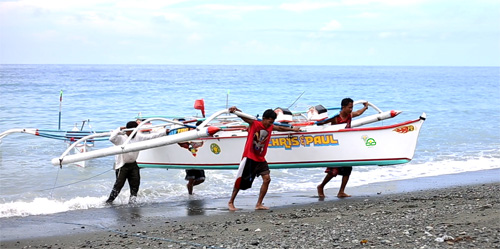The Department of Agriculture – Agricultural Credit Policy Council (DA-ACPC) in partnership with Malimono Multi-Purpose Cooperative (Malimono MPC) as its conduit cooperative is uplifting the lives of farmers and fishers in Malimono, Surigao del Norte.
It’s been more than a year since DA-ACPC reached the unbanked rural municipality like Malimono through its Production Loan Easy Access (PLEA) Program where farmers and fishers have the opportunity to apply for a loan at a minimal interest rate of 6% per annum.
Most financial institutions usually have too many application requirements that farmers and fisherfolk have difficulty in complying. This gave way to informal or individual lenders to lend them money and charged farmers with high-interest rates.
DA-ACPC provided affordable, accessible, and sustainable credit for small farmers and fisherfolk nationwide in partnership with lending conduits like the Malimono MPC who were actively working at the community level.
“We’re glad that when DA Secretary Piñol visited our place, he was able to see the potential of the cooperative in helping the farmers and fisherfolk,” said Dennis Ladres, Chairperson of Malimono MPC.
Ladres commends DA-ACPC’s dedicated advocacy to provide adequate technical and financial assistance to the farmers and fisherfolk. “The cooperative has been a good avenue through which the government can provide these services,” said Ladres.
The cooperative started with 19 principal members back in 1997 and now it has grown to 674 members with marginal and small farmers and fisherfolk (MSFF) as the majority of its members.
With the P15 Million fund entrusted to Malimono MPC to implement the PLEA, 353 of its MSFF members were granted loans of up to P50,000 to finance their agri-fishery production. This expedited the livelihood activities of the farmers and fisherfolk in the area.
“Without the PLEA, farmers and fisherfolk members had limited options when it comes to credit. With its minimal requirements and low-interest rate of 6% per annum, the PLEA program proves to be the solution to our problem,” Ladres said.
A Better Option
Malimono MPC member and fisherman Freddie Trajano from Brgy. Karihatag had negative experience borrowing from lenders collecting on “Arawan” (daily) and “Senimana” (weekly) basis. “Paying was hard before since there were days when our earning from fishing was tough,” said Trajano.
With PLEA, members are given adequate time to pay off their loans and allows them to re-avail of loans after every lending cycle. “It’s easier this time. I pay on a monthly basis and if I get a good catch, I pay to the coop in advance,” Trajano said.
Trajano used the P50,000 loan granted to him to finance his pump boat and buy other fishing equipment. “I am able to earn more because of this better option given to us,” he added.
Rice farmer Nelson Gallana from Brgy. Cantapoy also had negative experience borrowing from traders and “5-6” lending schemes. He said that traders would charge him as much as 3 sacks of palay for every P1,000 loan, a payment worth double the loan amount. “The old payment scheme would sometimes make me unmotivated to farm. Now, I experienced relief at the affordable interest rate, easy application process, and convenient payment scheme of the PLEA,” said Gallana.
Gallana’s P20,000 loan from PLEA was used to buy fertilizer, pesticide, and other farm inputs and he no longer had to surrender his produce to the traders he borrowed from. This has increased his production from 16 sacks to 30 sacks of palay from his half-hectare farm. “I now have a better earning to support the needs of my family,” Gallana added.
Aside from credit, Malimono MPC’s mission to empower members and allow them to sustain and manage their resources is also carried out through education on financial literacy, bookkeeping, accounting, leadership and governance training.
DA-ACPC is the country’s principal agri-fishery finance institution that partners with farmers and fishers’ cooperatives, rural banks, cooperative banks, associations, and non-government organizations, accrediting them as lending conduits to disburse loan funds under the PLEA Program. (Fretcher Magatao, DA-Caraga)







